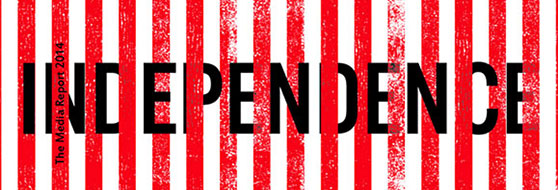Data is required for businesses to plan – be it in marketing or development or expansion. African data is notoriously bad – incomplete, inconsistent and unreliable. If the continent is to take its place on the world stage, governments and businesses need to find a way to work together to collect and provide the data that will encourage investment and growth.
‘Do you have data on Africa?’ is a recurring question I am being asked on social networks or when attending conferences and meetings overseas. ‘Sure, what are you looking for?’ I generally respond. ‘What do you have?’ is the counter-question. This is where it becomes tricky.
Firstly, Africa is of course not a country (at least for most). Just like people would not be asking for ‘Asian data’, they should not be asking for ‘Africa’. With 53 countries on the continent, the amount of data should be vast, deep, and insightful. Except that it isn’t. Data in ‘Africa’ is usually old, incomplete, with large gaps, geographically and topically. It differs from country to country.
South Africa for instance has a lot of data. Both government-collected as well as private sector-sourced. Most of this data is in the public domain, with some it held proprietary by commercially driven entities, which is fair since they paid for it. The statistics are constantly challenged, for instance: are crime figures really correct? Is unemployment really that low?
South Africa’s neighbour, Namibia, has similar challenges with national statistics. The figures don’t add up, claim some. Not for unemployment, not for the economy. The definitions differ and are up to interpretation, particularly if they are not politically favourable, say the same sources. This scenario recurs in other countries on the continent. Some data is available, but it is being questioned, which brings me to the second problem of ‘trust’ and ‘ownership’.
A HIDDEN AGENDA
The government data that exists is not trusted by the private sector, as it is deemed to have some political agenda attached to it. The private data that is generated is not trusted by government because it is perceived to come with a capitalist agenda. While public-private frictions are not unique, to the rest of the world it seems that the differences in ideologies impact considerably, not only on the availability of data, but on how economies are run in general. The lack of trust hinders social development in particular. Data is one piece of the power and decision-making game.
In Africa, most data outside of government sources is collected and owned by sources outside of Africa. This data is frequently used and quoted by globally owned by major international (Western) institutions, such as the World Bank, the IMF or the United Nations. This could, perhaps be because they are more trusted, which takes us back to the earlier point of trust and data usage.

Large international consultancies collect data amongst their clients or through field work. These include PWC, EY, Boston Consulting Group, KPMG and the World Economic Forum with its Annual Competitiveness Report. It is perplexing on the one hand and understandable on the other. Large consulting firms are competing on a global scale, where having ownership in this ‘Africa growth story’, adds to their credibility. They compete over the quality and relevance of data, in order to get lucrative consulting contracts, where the data is used as a ‘thought leadership’ hook.
A COMPETITIVE EDGE
If ownership of data is such a global competitive advantage, why is it that African consulting businesses don’t do the same? Where is their data? Why is it that there seems to be no concerted effort to collect more data, irrespective of the purpose?
Not all of the international businesses use their own resources to collect the data, most of them work with local field agencies. It is not for lack of capacity in data collection, but seemingly a lack of interest from government and organised business in African countries to conduct research themselves.
The third point is: relevance. I don’t question the reliability of the data currently available. I am sure the questionnaires are well compiled, statistically sound and the results interpreted correctly. But does data collection not also depend on the cultural differences of the target audience? People respond differently to questions in different cultural and political environments, which might influence the outcome of the survey.
While the results might be internationally comparable, they could be interpreted incorrectly from a local relevance perspective. I am not saying that ‘Western’ questionnaires give incorrect results about ‘African’ matters, but surely local knowledge is better suited to provide relevant survey outcomes than international parameters? Otherwise, it undoubtedly brings us back to challenge number two: trust. Can Africans trust data that has been generated and interpreted by Western data-owners, and vice versa? We should, but do we?
RELEVANT RESEARCH
The only consistent data source from the continent has been the Afrobarometer, an initiative by African scholars and civil society—albeit funded by international donors—that has been collecting data around democracy and governance in 35 countries for many years. While limited to those two issues, it is the only consistent, cross-African and regionally developed data stream available. It is highly reliable and of a high quality. It is the source of the most relevant research on those subjects in Africa.
Why is this not replicated for business, consumer and other subject matters? I suspect that the reasons for the lack of African data is a potential fear of what will be done as a result. If data is not favourable, there is a historic trend to suppress it on the continent. In other regions across the world, having multiple streams of data collection all the time, the possibility of ‘managing’ data results are limited.
Not so in Africa. Many gatekeepers monitor fewer data collectors, which poses a threat to transparency and accountability that normally emanate from data being made available. Data only threatens those who fear accountability and transparency. While data can lie and may be up to interpretation, it still is a scientific source that allows for debate and verification.
If African countries want more foreign direct investment, other than resource-based, such data is the key to unlocking business and investment opportunities. Without transparent and multi-stream data, the risk of doing business is simply too great. Not only in terms of Africa, but across the world.
If African countries want to diversify their economies, create more opportunities for citizens through international co-operations—including those of neighbouring countries—more data and especially current data is required. It is the availability of insights, based on data that will unlock the full potential for countries on this continent, not policies or government agreements.








